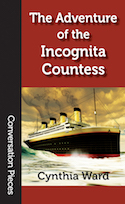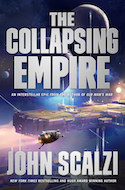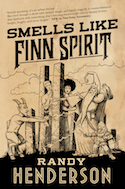The Future Alternative Past: can untaught writing be taut?
Every month, Nisi Shawl presents us with news and updates from her perch overlooking the world of science-fiction, fantasy, and horror. Read past columns here
Can and can’t
Many people say you can’t teach anyone to write. Just Google the phrase “Can’t teach how to write.” Half your hits will be refutations of the idea — which means half those discussing it think it needs refuting. Creative writing programs proliferate across the country, around the world, and all through the virtual ether — and yet they’re slammed by pros as too academic, too expensive, for dilettantes, for cowards, a scam to employ lazy and/or inept has-beens as teachers and enrich institutions catering to the dimwit dreams of talentless wannabes. The thing to do if you want to write, detractors of formalized writing instruction opine, is to actually write. You can learn to write, they say, but only from yourself.
What can be learned can be taught, counter the refuters. Writing is not an innate talent. It’s a skill. It can be imparted.
From my perch in Genreland I see both sides. As genius author and critic Samuel R. Delany wrote in Starboard Wine, in an essay titled “Some Presumptuous Approaches to Science Fiction,” the ability to read SF is an acquired one. Seeing words such as “The red sun is high, the blue low” on a page calls for work on the reader’s part. Why is the first sun red? Atmospheric interference? Age? Plus there are two suns — so neither is Earth’s sun — which is yellow, right? And on and on...readers familiar with the possibilities produced by just one SF sentence take them into account easily, and are easily able to handle the similar wealth of possibilities inherent in some fantasy and horror texts. Mundanes (the SFFH community’s term for outsiders) almost always have a harder time. They’re unused to the protocols that help us discriminate between literal and figurative versions of statements such as “Her head exploded.” And without understanding those protocols, SFFH is as difficult to write SFFH as it is to read.
One remedy for being outside the SFFH community is to enter it. Being surrounded by others who see what Howard Waldrop is saying does great things to one’s gestalt. Reading, participating in discussions, attending conventions and film festivals, and taking workshops are all good ways of getting inside. At Clarion West, Clarion, Milford, Viable Paradise, and other SFFH writing workshops, students learn from each other as well as from the official instructors.
There are also books to assist us: Cory Doctorow’s The Complete Idiot’s Guide to Publishing Science Fiction, Ursula K. Le Guin’s Steering the Craft, and Writing the Other: Bridging Cultural Differences for Successful Fiction, to name a few. The last example was based on the class of the same name I taught with my co-author, Cynthia Ward, which shows you that I not only think it’s possible to teach writing SFFH, I have even actually attempted it.
But I restrict myself in these attempts. I focus on particular elements of writing SFFH: dialogue and dialect, narration and inclusivity, characterization and representation. Most of the time these daysI teach online in partnership with K. Tempest Bradford, and we expand on specific topics covered in the Writing the Other book.
Is teaching writing possible? Do I succeed? Authors tell me they’ve written entire books because they took my course or read my book. But there are bound to be failures. Some people are just no good at writing, and no good at writing SFFH in particular, whether or not they’re well taught.
Ways in
The big regional convention hereabouts is Norwescon, coming up April 13 - 16. In addition to the usual panels discussing topics such as Utopias, spacetravel, and the future of brain-sharing, there are filmmaking contests and masquerades. And lots of workshops — including miniature versions of the weeks-long ones mentioned above. The Philip K. Dick Award is presented at Norwescon, too, at a banquet studded with witty speeches.
Eastercon, aka Innominate, occurs the same weekend as Norwescon, but several time zones away, in England. There, too, a banquet will be held to showcase the presentation of awards: in this case, the coveted British Science Fiction Association’s picks for best novel, short fiction, nonfiction, and art. A longstanding tradition (the first Innominate happened the year I was born, 1955) it hosts the other events con-goers expect as well: gaming, dancing (at a “Pyjama Disco” this year), panels,etc. All this, and Marmite too!
Recent books recently read

Definitely falling into the pulpish “with a mighty bound” school of SFFH, Cynthia Ward’s The Adventure of the Incognita Countess (Aqueduct Press) mashes up elements of Tarzan, Dracula, H.G. Wells’ Martians, and the Sherlock Holmes mythos in a spy caper set aboard the HMS Titanic. Amid thesteampunkish thrill of weaponized gloves and a stolen set of blueprints for Jules Verne’s proto-submarine Nautilus, Ward’s heroine experiences the throes of vampiric lesbian love and finds herself questioning her terribly problematic views on souls. Though short, this book throngs with action and its characters’ piercing emotional reactions to its tight plot.

John Scalzi’s latest space opera The Collapsing Empire (Tor) shares the breezy, conversational tone of his popular blog, Whatever. Popes, cutthroat merchants, and dying emperoxes (in Scalzi’s non-gender specific nomenclature) complain about the weight of their coronation robes, the idiocy of officials, and the obstinacy of assassins. The novel’s premise is that after centuries of human use a faster-than-light path between star systems is fading out of existence. Within a decade.Switching viewpoints between a reluctant heir to the pan-stellar throne, a nerdish provincial mathematician, and a lusty smuggler of refugees, the author’s entertaining account of this so-called Interdependency’s unraveling inevitably ends in a cliffhanger. There will be a sequel. Maybe more than one — as noted on Whatever, Tor andScalzi just signed a 10-year contract. However manybooks he writes in this series, if they’re as easy on the eyes as this one, they’ll be welcome.

Smells Like Finn Spirit, (Tor) local author Randy Henderson’s third and final fantasy in the Familia Arcana trilogy, is as 80s-referential as the first two. Maybe more so. Though his rock star girlfriend is doing her best to catch him up on cultural developments that took place during his twenty-plus-year exile in fairyland, hero Finn Gramarye’s humorous take on the continuing war between fairies, wizards, and magical beings such as sasquatches and weresquirrels depends heavily on knowledge of that decade. Fortunately he gets cooperation in his preferences from those surrounding him: a sorcerer battles him in an illusory maze in the guise of Donkey Kong. His girlfriend disarms murderous fairies by singing pop songs with pointed lyrics.And so forth. If you’re unfamiliar with that time period, you’re best off reading volumes one and two of the series (Finn Fancy Necromancy and Bigfootloose and Finn Fancy Free) before starting this third one. Become grounded. That’s the best way to enjoy the buzz of being swept off your feet by Henderson’s guileless giddiness.